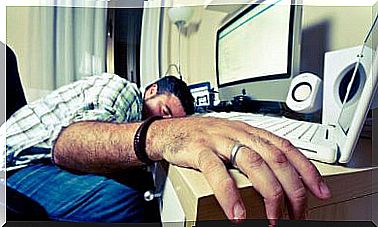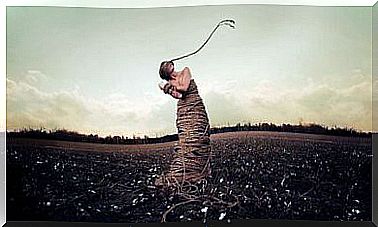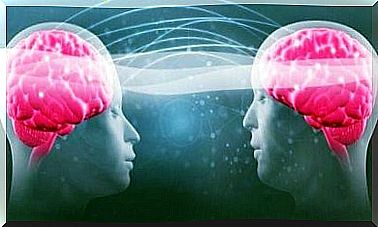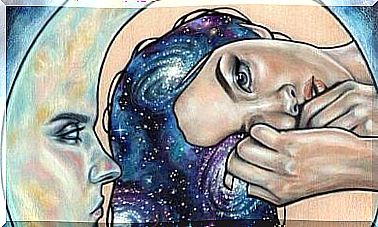Shame And Depression, How Are They Related?

Shame and depression orbit in the same psychological sphere, they are related, they feed back one to the other. Thus, and although when talking about this disorder we link it with emotions such as sadness, anguish or frustration, it is necessary to understand the great complexity that is integrated into this mental reality. In it, a great number of sensations and feelings navigate in a turbulent way.
Likewise, there is something evident: each person shows a relief at the time of manifesting a depression. There are those who are immobilized, trapped in suffering and seeking the refuge of a room with the blinds drawn. Others, on the other hand, mask their discomfort with hyperactivity, with the need to always be doing things so as not to think.
However, we could say that the filter of shame is present in many ways. It adheres to almost any thought, making us feel fallible, making us doubt ourselves at every moment … until we settle in the corner of guilt, fear, uselessness and defenselessness.
Let’s dive a little deeper into this relationship.
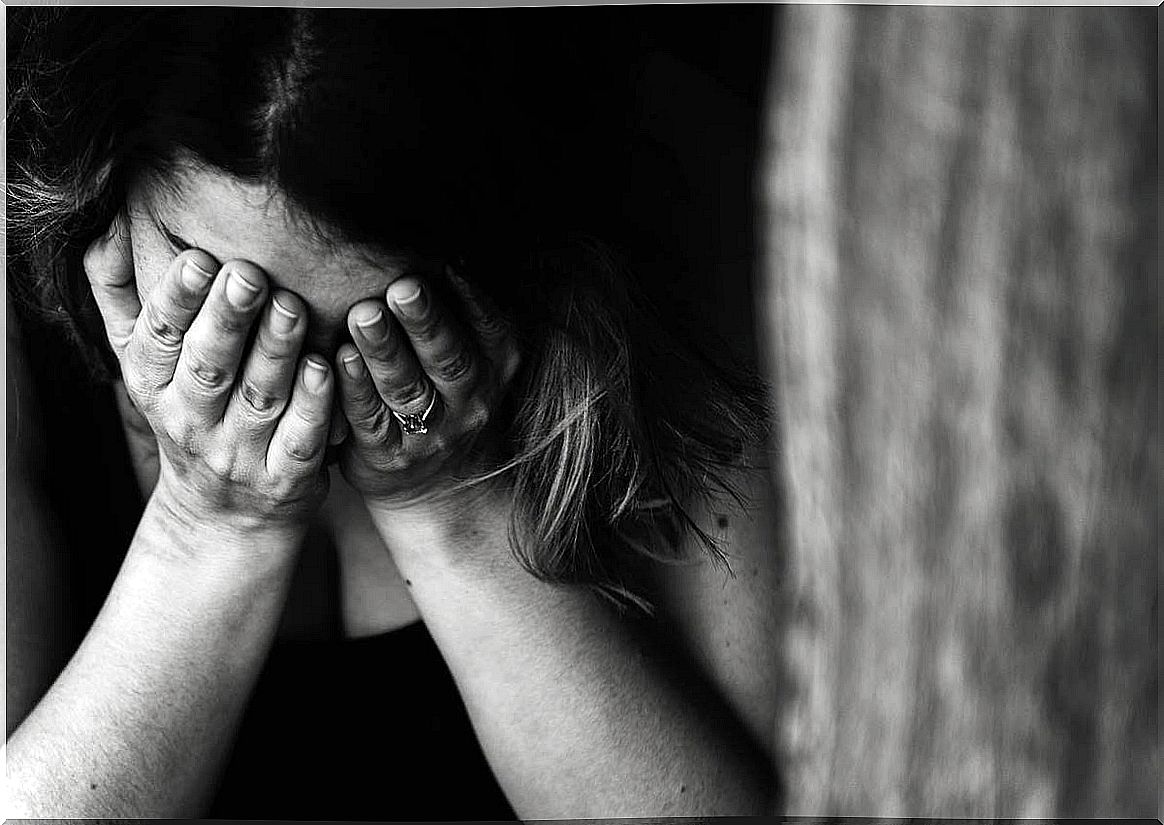
Shame and depression: relationship, symptoms and coping
Shame is an inhibitory emotion, as is guilt and anxiety. What does this mean? What implication does it have in mood disorders? What it basically does is take us away from our inner being and invalidate us. What it does, in turn, is not to let us be ourselves, it feeds us with insecurities and inoculates us with fear to express ourselves, to act, to be and even to feel.
It should be noted that it is not because we are somewhat more shy or embarrassed that we run a greater risk of experiencing depression. In reality, this emotion is one more component in said psychological disorder, it is one more ingredient that acts as a brake and intensifier of suffering. Let’s understand more aspects below.
The physiology of shame
Shame informs us of an internal state of inadequacy, that we are not good or worthy of something. It promotes the feeling of regret, of guilt for not fulfilling our ideals or responsibilities.
Moreover, this emotion also acts on a physiological level in many ways: it disconnects us, reduces energy and even alters the physiology of digestion, of night rest … It paralyzes us with fear and tortures us with the idea that we are not worthy of almost nothing.
It is also important to know that embarrassment, like shyness, is not a problem if we feel them occasionally. Now, when they are a constant in our life, phobias, eating disorders, etc. appear.
Shame and depression how do they manifest themselves?
When a person suffers from depression, all the emotional and cognitive mechanics are altered. Something that has been seen in studies such as the one carried out at the University of Coimbra (Portugal) is that when a person suffers from this disorder, it is common for past experiences related to shame to come to mind. It is as if our mind is looking for even more triggers to increase suffering.
Thus, and on average, the link between shame and depression manifests itself as follows:
- People stop doing those things that made them feel good about themselves. Now, the feeling of shame runs with ideas such as ” if you do it you will fail, you will screw up and you will be exposed, do not try because you are not good for that and they will laugh at you …”.
- Depression makes one not feel like doing housework, finishing that project, doing sports, doing what they have asked us to do … Before long, shame starts to kick in, making us feel bad about ourselves. That we are ashamed of the person we have become.
- There is also the anguish of being judged in whatever we do or stop doing. Sometimes, even finding some strength to carry out a task, the idea of being criticized prevents it. We fear that we will be ashamed of it, so we do not do it, we do not try and this further doubles the discomfort.
- Likewise, it is also common to feel ashamed of being depressed. They interpret that it is a burden.

How are these types of situations handled?
Shame and depression are related, but this emotion is still one more dimension of the highly complex psychological dynamic that defines these conditions. Therefore, when treating and dealing with these types of disorders, it is important to always have a proper diagnosis.
Sometimes the person may have other comorbidities. As we have pointed out before, when shame appears and it is permanently installed, phobias and even eating disorders can appear.
So, on average, there are different approaches to treating depression:
- Pharmacological treatments (fluoxetine, paroxetine, sertraline or citolopram…). Sometimes they can help, but by themselves they are not the solution to the problem.
- Cognitive-behavioral therapy. Techniques such as cognitive restructuring or problem-solving techniques help the person improve their thought patterns to improve self-control and well-being.
- Acceptance and commitment therapy. This therapeutic resource makes it easier for the patient to learn to create a more meaningful life by accepting the pain and contradiction that inevitably always appears on a daily basis.
The mental universe of people with depression is as hard as it is complex. Despite this, we must be clear: it can be overcome. So let’s not hesitate to ask for help when we need it.

